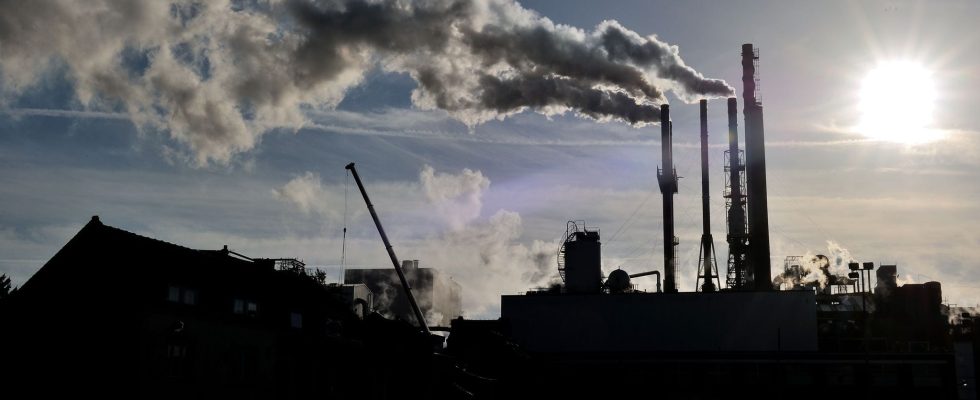Yesterday oil, tomorrow CO2: France plans to test from the beginning of 2025 “four or five CO2 storage projects” as a priority in the country’s old oil fields or at the end of their life, to help the industry maintain its decarbonization objectives.
It is certainly not Texas and its subsoil full of hydrocarbons, but France also has oil deposits, old or still active, in the Paris region and in the Aquitaine basin, some of which will be used to accommodate CO2 emitted by industries.
“A call for expressions of interest”
The Minister for Industry and Energy Roland Lescure will launch on Friday “a call for expressions of interest” targeting in particular hydrocarbon players so that they propose projects for burying CO2 as a priority in these deposits. The government is targeting in particular the few companies which produce around 1% of the oil consumed in France, such as Vermillion, the ministry’s office told AFP.
The announcement, which will be made officially on Friday during a visit by the minister to the Technip Energies factory in Sens (Yonne), marks “the realization of the launch of France’s storage strategy”.
It is part of the ecological planning and decarbonization work of the industry, the objective of which set by the Elysée is to halve its CO2 emissions which warm the planet in 10 years. According to the ministry, “the potential on existing hydrocarbon concessions at the national level is estimated at around 800 million tonnes of CO2”, which would cover “50 years of the CO2 storage needs of French industry” .
Carbon capture and storage are among the solutions seen as necessary by experts to contain global warming, provided they are not used as a license to continue to pollute. “It really must be processes without decarbonization alternatives that are concerned,” warns Anne Bringault, director of programs at the Climate Action Network.
Lower the costs
Questioned by the newspaper Les Echos, Roland Lescure recalls that the decarbonization plan for the 50 most polluting industrial sites, announced in November 2022, first provides for measures such as “energy efficiency, electrification, replacement of coal with hydrogen. “Capture only happens as a last resort,” he assured.
Fertilizer manufacturers, cement manufacturers, chemists, 37 manufacturers among the 50 highest emitters have expressed their need to capture and store the CO2 that they cannot eliminate by other means at the end of their manufacturing chains, in order to respect their decarbonization roadmap. They estimated their capture needs at around eight million tonnes in 2030, then 16 million by 2040.
Once potential storage sites have been reported by companies, by July 26, a call for projects phase will be open until December in order to assess their potential. The objective is that “at the beginning of 2025, carbon storage will be tested in four or five places in France”, indicates the ministry. Roland Lescure sees this as “an opportunity for reconversion” for these territories still linked to the oil industry. “I hope for a debate that is as reasoned as possible,” he said, referring to possible issues regarding the acceptability of these projects by the public.
At the time of the tests, these projects will be able to benefit from a still provisional overall envelope of “around 20 to 30 million euros” within the framework of the France 2030 program. These tests will have to verify that the wells are properly watertight to accommodate the CO2. “We will also have to look at all the monitoring conditions, because these are the technologies which are not mature and there are risks of leaks in the long term,” underlines Anne Bringault.
Why store in France? “There are other opportunities to do this: Norway, Denmark, are considering storing CO2 on their territory” in deep waters, but these projects have a “high cost”, due to transport and the technology used. , offshore, notes Bercy. “Storing this CO2 in France will therefore make it possible to divide the cumulative cost of transport and storage by two or three” compared to these Nordic projects, in which France will remain involved, indicates the ministry.
